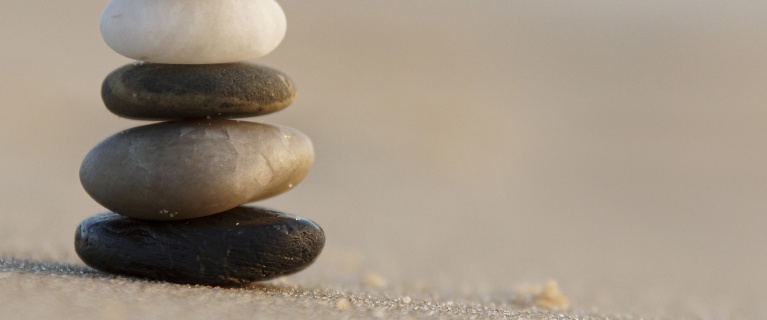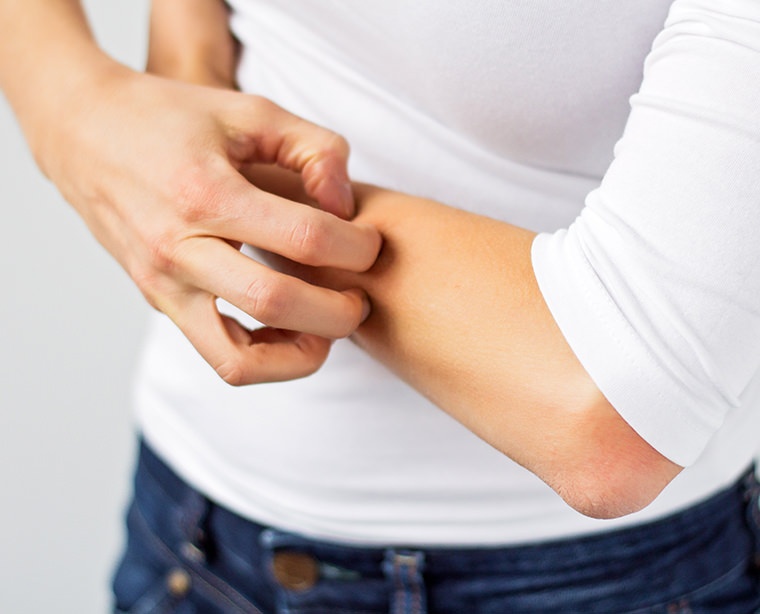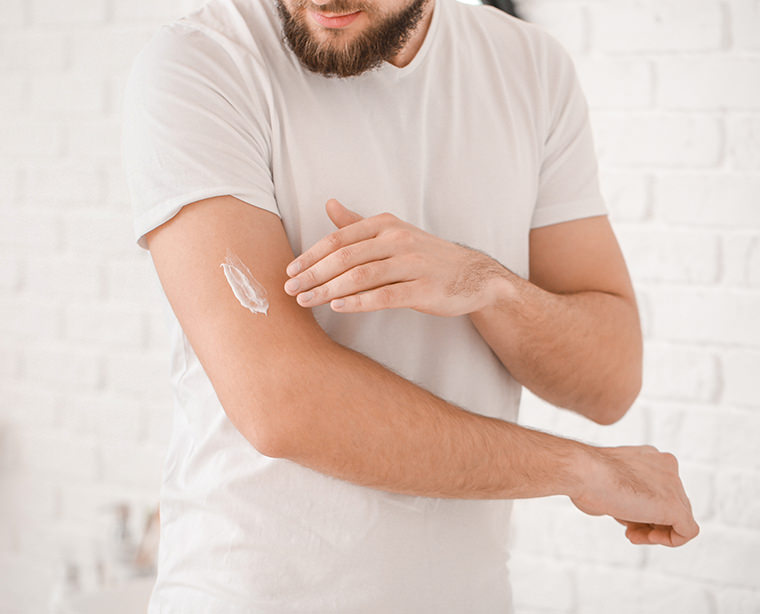

Eczema : anti-scratching tips

Every single person with eczema itches. Indeed, the desire to scratch is one of the symptoms. It is hard enough to resist this urge during the day, let alone at night.
We have some tips and tricks on how to scratch less and thus reduce your risk of infection.
Avoid saying “Stop scratching!”
Parents or loved ones may be tempted to say it, but all this does is create feelings of guilt and stress. Far from being a “controlled” action, scratching is automatic and often done subconsciously. If you want to help, try offering anti-scratching alternatives!
Follow your skin care routine
Creams are your first tool to soothe itching. Reducing inflammation with topical corticosteroids and hydrating your skin with emollients are two key steps to incorporate into your daily routine to provide soothing relief from eczema.
Prevent and soothe itching
Use an emollient
Apply an emollient several times a day, and always be sure to keep a tube of cream handy (in your schoolbag, purse, gym bag, on the nightstand, etc.).
Use thermal spring water
Some patients always have a thermal spring water spray nearby. This strategy involves spraying it for extended periods or applying soaked compresses for 15 minutes. Follow this by hydrating your skin with an emollient. The cream absorbs more easily when skin is damp prior to its application.
Harness the power of cold
Cold and cool temperatures numb itching. For temporary relief, try these soothing techniques:
- Refrigerate thermal spring water prior to spraying it, then enhance the cooling sensation by airing out your skin with a hand-held fan, an electric fan or a hairdryer on the “cool” setting.
- Use a cold pack wrapped in a thin cotton cloth to avoid direct contact with the skin. Do not exceed 10 minutes.
- Massage itchy areas with smooth stones. For maximum relief, place the stones in the refrigerator first. Try placing a small stone in your bag so you can use it throughout the day.
Wear cotton gloves at night
Many people wear gloves at night to avoid scratching and scraping in their sleep.
Use a massage roller
It helps soothe itching without scratching the skin or intensifying the urge to scratch. Use it over clothing rather than on the skin directly.
Know your enemy!
The more you know about eczema, the easier it is to alleviate it.
- The less you scratch your skin, the less it itches.
- The less you scratch, the less you want to scratch.
You can also learn to recognize the triggering or aggravating factors and to adopt good habits at home and in your bathroom.
Cut your nails short
This is critical to avoid tearing your skin. Rule of thumb when you have eczema: keep your nails short.
Prepare ahead for a scratch-free night
Interrupted sleep caused by scratching sessions is just one of the many burdens people with eczema have to deal with. By taking a few moments to get ready for the night, you can greatly improve your comfort:
- Apply an emollient before bed
- Keep a thermal spring water spray and hydrating cream nearby
- Avoid too many covers and opt for cotton or linen sheets
- Air out your bedroom
- Avoid overheating your room (18°C max.)
- Wear cotton or silk gloves or mitts
Keep your hands busy
Play with a stress ball, place beads in your jacket pocket, do manual tasks... You can find ample ways to keep your hands busy all day long if you look hard enough! This is a great way to avoid subconscious scratching.
Instead of scratching your skin, scratch a piece of velcro placed in your pocket or elsewhere.
Take your mind off it
Thinking about anything other than your itchy arm or stomach is the first step to avoid scratching. Although boredom has its perks, best to keep your mind occupied at the peak of a flare-up.
Take time to relax
Stress is an aggravating factor, so anything you can do to relax would be beneficial. Practice diaphragmatic breathing, do yoga or try sophrology exercises. Even playing a sport is recommended, as long as you adopt a few good habits.


